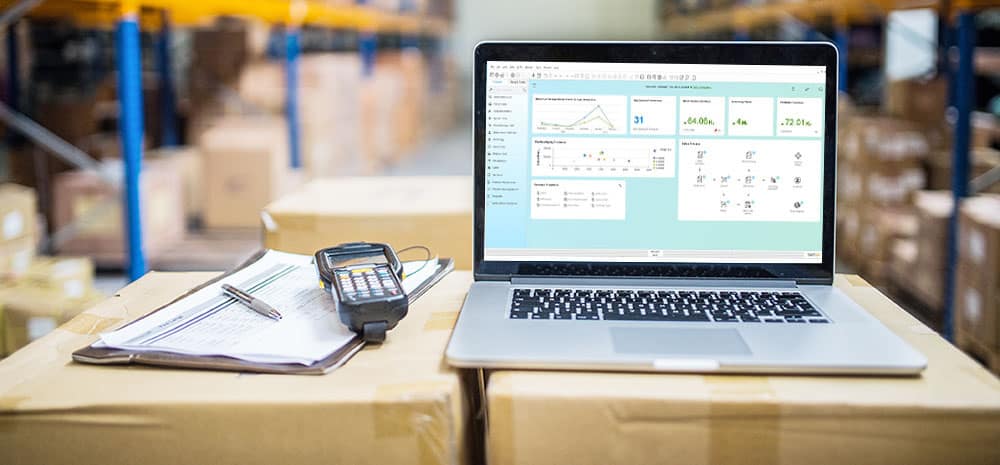GROWING COMPANIES IMPLEMENT ERP SOLUTIONS
When it comes to growing pains, ERP can help!
On-Site Support
Today, many ERP systems offer cloud-based solution options and professional services provided to allow for a complete off-site capability.
Change Management
All companies are worried that a new ERP project will impact the day to day activities of the company. With careful selection of the proper provider and a focus on documenting the changes, this can be minimized.
Systems Costs
ERP platforms are scalable and able to be tailored to the specific needs of a business, making them much more accessible than many organizations may think.
Cost to Customize
Most mainstream ERP systems are designed to integrate with other solutions that many businesses use, allowing custom functionality as needed. Many ERPs also have open APIs, allowing for easy to build custom apps and implementations.
Time to Implement
ERP implementation is a major project, but new hosted and targeted ERP systems allow smaller organizations to better manage the Time to Implement.
Large Companies Only
This was once true, but the ERP technology landscape has diversified enough to accommodate businesses of all sizes.
For A Growing Company, ERP Systems Are Required To Remain Competitive
Build Your Competitive Advantage
As companies grow, their needs and processes change over time. To accommodate this, their systems need to provide effective scalability to handle the changes in process as well as volume. Many legacy systems cannot take advantage of new technology and do not provide flexible processes.
With growth, most companies immediately determine that they need more than just an accounting system to run their business properly. The importance of cross-departmental information begins to escalate as it is needed to make decisions for the business going forward. Having an enterprise level system in place to provide not only access to information but also process controls for the business itself becomes essential to the overall health of the organization.
In most cases, companies will come to a decision point with regards to their legacy system. The cost to maintain or enhance their system grows to a level where evaluation of additional options is required. Many of the older legacy systems are often no longer support and thus pose an increased risk of failure.
- Many older systems will have security issues
- Old technology is often far more expensive to maintain than newer, lighter systems, from a general maintenance point of view
- Older systems lack flexibility to customize or integrate
- It becomes more difficult and more expensive to find a support for the outdated system
- They suffer from a lack of modern features and functionality
Probably the most powerful delivery from an ERP is the inherent visibility into inter-departmental activities. No longer is the company siloed in its various departments. An ERP will allow companies to use the same information across departments, stamping out the risk filled, time-consuming, money wasting practice of duplicate data entry. The shared information and processes allow better governance to ensure distributed organizations operate the same way which in turn reduces risk.
Many companies realize that they need to alter their processes but finding the will and determination to make major changes across a company can be daunting. Time and again, I have seen organizations use an ERP implementation as the primary change agent for their overall goals for the company. Implementing an ERP system will force definition of business processes and procedures to be used in the future. It allows for changing the “this is how we have always done it” approach. It also allows for the company to re-define their business to a more streamlined and efficient model.
Many large companies are looking to re-focus their operations onto their core business. We have seen many companies “Spin Off” subsidiaries based on such changes in focus or goals. While a subsidiary may be experiencing little to no growth as a part of the larger corporation, it may be quite valuable to sell as an independent operation.
For these types of organizations, it is essential to invest in a properly sized system and start over with clean data tailored to their business model. Additionally, for a company spinning off a division or product, a new ERP system can facilitate the change of focus away from a product or service and help achieve a ‘clean break’.
Investing in an ERP system is imperative to any growing business. Often small to medium sized enterprises grow out of their legacy systems, and processes are quickly backed up. By upgrading to an ERP system, companies can be confident that their systems will scale and grow as their company continues to evolve and succeed.
Small and medium-sized businesses are increasingly embracing ERP systems to enhance their operational management and productivity. These systems offer a unified platform for managing an array of business processes, including:
- Accounting
- Finance
- Sales
- Inventory
- Customer Service
ERP systems effectively reduce costs and increase efficiency by optimizing and automating these processes. They also provide real-time insights into a company’s operations, enabling them to adapt swiftly to fluctuating market conditions and gain a competitive edge in their industry.
ERP systems include functionalities such as
- Accounting
- Inventory Management
- Customer Relationship Management (CRM)
- Human Resources (HR)
- Project Management
These modules are interconnected, facilitating smooth data flow and providing a unified data source for the entire organization.
Streamline: ERP systems are specifically designed to help businesses streamline processes and enhance efficiency. By offering a consolidated data source, they enable businesses to make swift and accurate decisions.
Improve: Furthermore, ERP systems grant greater transparency into business operations, allowing managers to monitor performance in real-time and pinpoint areas for improvement.
Scale: Designed for scalability, ERP systems let organizations effortlessly incorporate new features as their requirements evolve.



